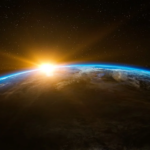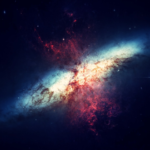Space is a vast expanse filled with mysteries and awe-inspiring phenomena. From stars and planets to black holes and distant galaxies, space continues to inspire and captivate humanity. In this article, we will explore 20 interesting facts about space that might surprise you.

- The universe is at least 13.8 billion years old, according to the latest data from the “Planck” space telescope. This is the age of the universe since the Big Bang.
- The universe is expanding. Galaxies far away from us are moving apart, and this process is accelerating. The discovery of the expansion of the universe earned the Nobel Prize in Physics.
- The Sun is just one of over 100 billion stars in the Milky Way, our galaxy. However, there are numerous other galaxies in the universe.
- The universe contains vast clouds of gas and dust called molecular nebulae, from which stars are born.
- Stars are born, live, and die. Massive stars can end their lives in a bright explosion known as a supernova.
- There exist black holes, massive clusters of matter that have become so dense that their gravity is irresistible. They engulf everything, including light.
- The universe is home to a tremendous number of galaxies. The most common types of galaxies are elliptical and spiral galaxies.
- In 1977, the Voyager 1 space probe discovered an outer planet of the Solar System called Triton. It orbits around Neptune and is one of the coldest places in the Solar System.
- The largest planet in the Solar System is Jupiter. It is so big that over 1,300 Earths could fit inside it.
- Space-time is distorted. Due to the gravitational fields and the speed of movement, time in space passes slower than on Earth.
- The universe is filled with mysterious dark matter, which makes up about 27% of the entire contents of the universe. However, its nature remains unknown.
- Space is devoid of sound because there is no air to transmit sound waves. The vacuum of space lacks the medium necessary for sound propagation.
- Astronauts experience the effect of weightlessness in orbit. This is because they are in a constant state of free fall, where gravity and their orbital motion are balanced.
- The universe contains a cosmic microwave background radiation, a faint glow left over from the early stages of the universe.
- Asteroids, meteoroids, and comets are remnants of the material from which planets formed. Studying these objects can help us understand the processes that led to the formation of the Solar System.
- The Moon has no atmosphere or water. Its surface is heavily cratered from meteorite impacts and features lava seas.
- The Hubble Space Telescope has allowed scientists to capture incredibly beautiful and detailed photographs of cosmic objects. It has made significant contributions to our understanding of the universe.
- There is a hypothesis that suggests the existence of other forms of life in the universe. Numerous planets are located in the habitable zone, where conditions could be conducive to the emergence of life.
- In 2015, NASA announced the discovery of an “Earth-like” planet called Kepler-452b. This planet is in the habitable zone and has similar characteristics to Earth, making it potentially suitable for life.
- Space missions continue to explore the depths of space and expand our knowledge of the universe. Missions such as Cassini, Mars rovers, Juno, and New Horizons have allowed us to learn about planets, moons, and other intriguing objects in our Solar System.
Space is an incredibly captivating and enigmatic realm that continues to astound us with its beauty and complexity. Exploring space helps us better understand our place in theuniverse and may lead to new discoveries and insights into the nature of life beyond our planet.






Leave a Reply